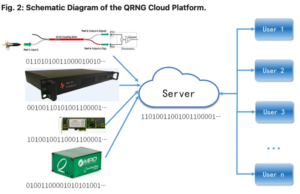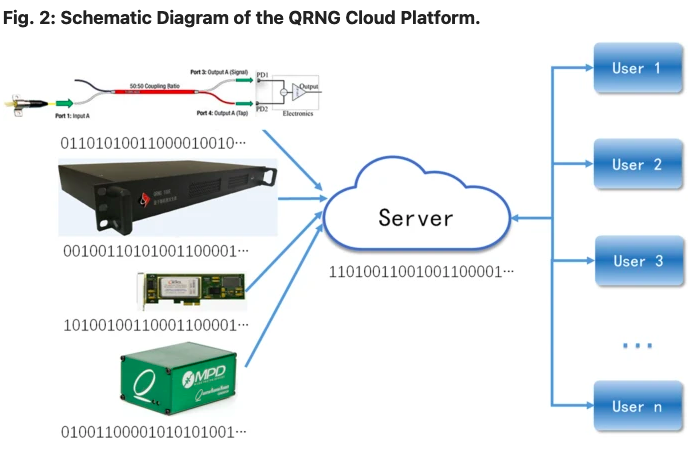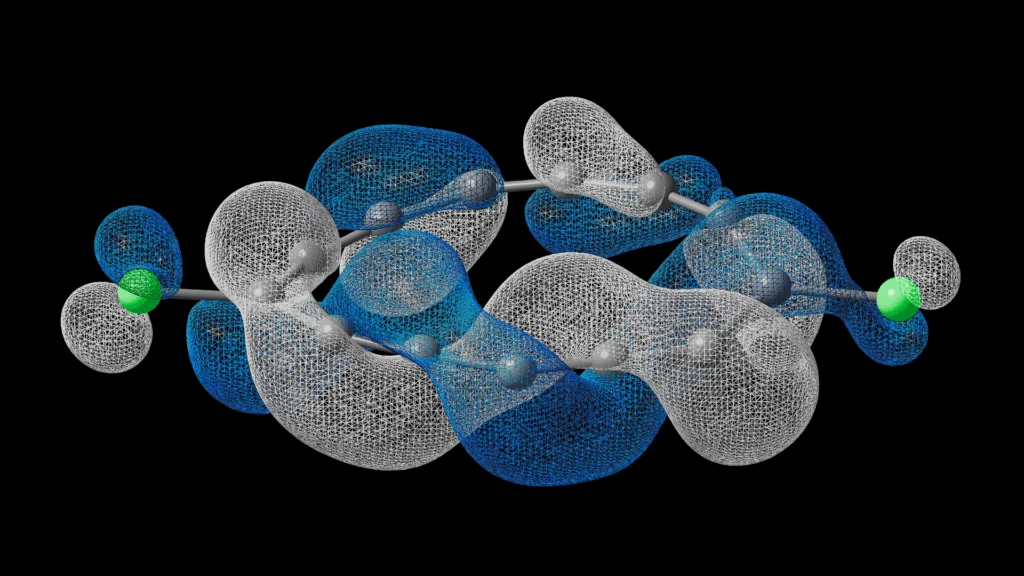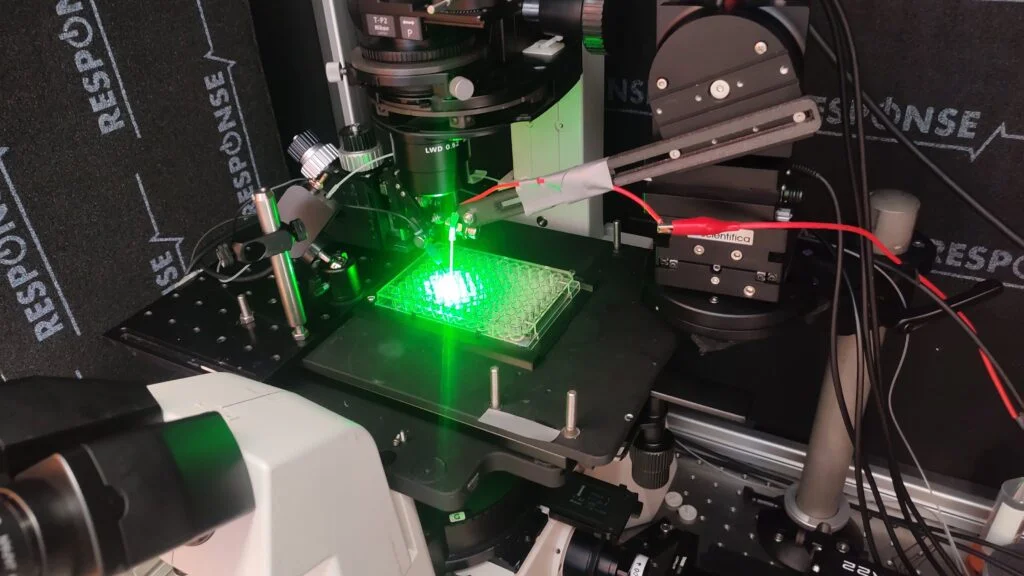
Scientists from Alibaba, the Chinese e-commerce giant, report they have designed a scheme that demonstrates the ability to share high-quality random numbers across a distributed network using quantum technology.
In a study published in Nature, the research team integrated four different types of quantum random number generators on the Alibaba Cloud servers to enhance cybersecurity. The types of QRNG include those based on single-photon detection, photon-counting detection, phase-fluctuations, and vacuum-fluctuations. Post-processing modules are integrated into the quantum platform to extract true random numbers, the researchers added.
Alibaba has used the system for about a year, primarily to safeguard the company’s important applications that are often the target of hackers, such as Ant Group’s fintech system.
The researchers note: “The applications in SAG and Ant Financial show the practical implementation of quantum technology in data encryption. Our platform demonstrates quantum random number services with sufficient and adaptive generation speeds, reasonably low costs, controllable risks, high stability and simple maintenance.”

According to the team, the random numbers generated by this scheme can be combined with encryption-related protocols, identity authentication technologies, or key management systems. Different users can also access the QKD systems and the quantum random numbers can serve as seeds for QKD communication.
The QRNG system provides service to ten different locations at Shanghai, Japan, Hong Kong, Singapore, Malaysia, Indonesia, Australia, United Kingdom, Germany, US East, US West, the team reports.
While high-quality random numbers represent next-level cybersecurity, questions still arise as to just how random the system is and, while it would likely foil classical attacks, the prospect of hacks with quantum computers may require truly random numbers.
The team plans to investigate applications with post-quantum algorithms and QKD because the distributing random numbers using classical SSL/TLS is currently an issue from the quantum-safe point of view. They also developing integrated QRNG-chip that are embedded into the SAG devices and expect to develop and integrate more different QRNGs to enhance the system’s security and speed.
For more market insights, check out our latest quantum computing news here.















